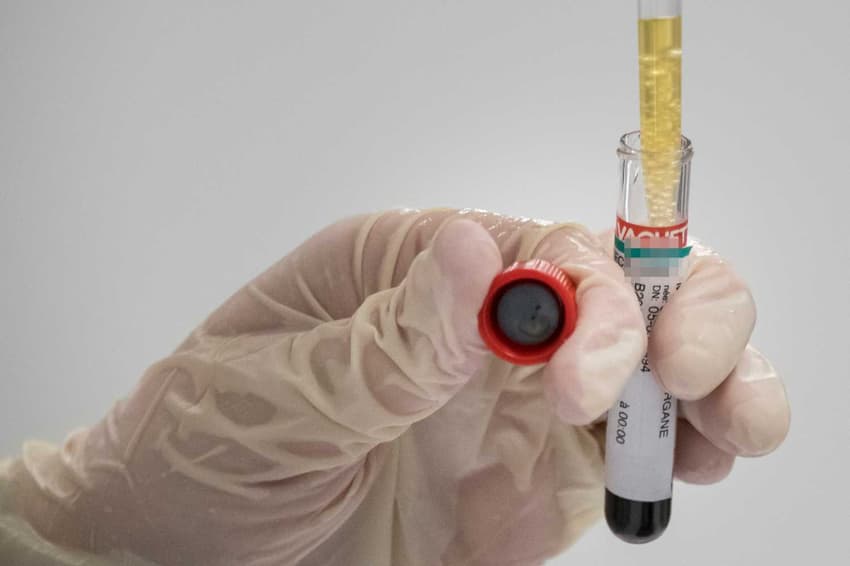'Less that 10 percent' of Switzerland's population are immune to Covid-19

A new study shows that only a small percentage of Switzerland’s population has developed immunity to the coronavirus.
Researchers believe that once a person becomes infected, they develop resistance to the virus and can no longer transmit it to others. If a lot of people become resistant, it is called ‘herd or collective immunity'.
In order for the group immunity to be present, at least 50 to 60 percent of the population must develop antibodies. This could, at least in theory, prevent another wave of the epidemic.
But this is not the case in Switzerland at the moment.
For instance in Geneva, one of the hardest-hit cantons and the first to be studied in the initial phase of the Corona Immunitas national study, only 9.7 percent of the population is believed to have antibodies to Covid-19.
If this figure is indicative of the rate for the entire country, this means that Switzerland will not achieve the hoped-for collective immunity to the coronavirus this summer.
“This rate is low but consistent with other studies carried out in the world", one of the study’s researchers, Arnaud Chiolero, said in an interview published by La Liberté newspaper.
"This is certainly a sign that the social distancing measures have worked," Cholero added.
READ MORE: Swiss researchers develop 'coronavirus passports' to show immunity
Assuming that antibodies really do protect against re-infection, the proportion of the Swiss population that has been contaminated and developed immunity will “be too small to prevent a rebound of the epidemic”, Cholero noted.
However, there is no certainty at the moment that being infected with Covid-19 offers permanent, or even temporary, immunity against the virus.
"It is likely that after being exposed to the virus, our immune system offers some protection. But we don’t know for sure what the degree and the duration of this protection are", Cholero said.
Studies are currently underway on this subject, in particular one carried out at the University of Lausanne, which also participates in the Corona Immunitas project.
The project will continue over the next six months, collecting epidemiological data in various Swiss regions to assess the immunity to the SARS-CoV-2 virus, which causes COVID-19.
Final findings will provide information on the number of people in Switzerland who have antibodies against the coronavirus, and whether it is possible to become infected again despite the presence of these antibodies.
Comments
See Also
Researchers believe that once a person becomes infected, they develop resistance to the virus and can no longer transmit it to others. If a lot of people become resistant, it is called ‘herd or collective immunity'.
In order for the group immunity to be present, at least 50 to 60 percent of the population must develop antibodies. This could, at least in theory, prevent another wave of the epidemic.
But this is not the case in Switzerland at the moment.
For instance in Geneva, one of the hardest-hit cantons and the first to be studied in the initial phase of the Corona Immunitas national study, only 9.7 percent of the population is believed to have antibodies to Covid-19.
If this figure is indicative of the rate for the entire country, this means that Switzerland will not achieve the hoped-for collective immunity to the coronavirus this summer.
“This rate is low but consistent with other studies carried out in the world", one of the study’s researchers, Arnaud Chiolero, said in an interview published by La Liberté newspaper.
"This is certainly a sign that the social distancing measures have worked," Cholero added.
READ MORE: Swiss researchers develop 'coronavirus passports' to show immunity
Assuming that antibodies really do protect against re-infection, the proportion of the Swiss population that has been contaminated and developed immunity will “be too small to prevent a rebound of the epidemic”, Cholero noted.
However, there is no certainty at the moment that being infected with Covid-19 offers permanent, or even temporary, immunity against the virus.
"It is likely that after being exposed to the virus, our immune system offers some protection. But we don’t know for sure what the degree and the duration of this protection are", Cholero said.
Studies are currently underway on this subject, in particular one carried out at the University of Lausanne, which also participates in the Corona Immunitas project.
The project will continue over the next six months, collecting epidemiological data in various Swiss regions to assess the immunity to the SARS-CoV-2 virus, which causes COVID-19.
Final findings will provide information on the number of people in Switzerland who have antibodies against the coronavirus, and whether it is possible to become infected again despite the presence of these antibodies.
Join the conversation in our comments section below. Share your own views and experience and if you have a question or suggestion for our journalists then email us at [email protected].
Please keep comments civil, constructive and on topic – and make sure to read our terms of use before getting involved.
Please log in here to leave a comment.